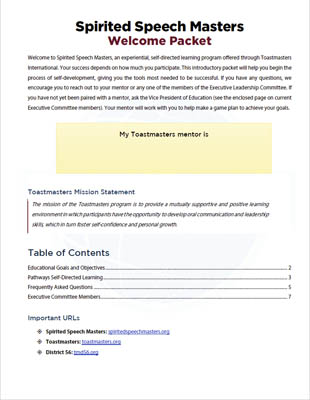Serving as Toastmaster-of-the-Day for the first time can be a daunting prospect, so much so that it can be difficult to encourage newer members to give it a try. A few of the typical responsibilities include:
- Selecting and sharing a theme around which a short -- typically 2-3 minutes -- introduction can be given (this is optional but generally boosts the enjoyment factor for participants)
- Making an effort to see that as many meeting roles as possible are filled in the days before the meeting
- Welcoming any visitors
- Running the first portion of the meeting
The decision to volunteer for the role is likely made all the more difficult by the fact that it's often the more experienced members who end up having to regularly fill this role, giving novices the impression they have to perform at a similar level of proficiency. For this reason, it's been very helpful in Spirited Speech Masters for our VPE to have created a weekly schedule for this role, giving newer members the gentle push they need to try out this highly rewarding role.
The Toastmasters 101 podcast -- a production of Toastmasters District 10 -- has some helpful tips for people filling this role, including help selecting a theme and managing time during the meeting. This information is helpfully available as a podcast or as text. Give it a listen and then give the role a try!




